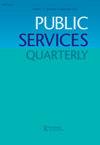学术写作中的人工智能:工具还是入侵者
Q3 Social Sciences
引用次数: 1
摘要
人工智能(AI)在日常生活中越来越普遍。人工智能已被用于艺术创作、音乐创作,以及最受学术界关注的写作。计算速度的进步只会增加人工智能的适应性,但用户如何以负责任的方式利用这项技术?ChatGPT等人工智能技术允许用户创建可用于大学作业的书面作品。学术界应该意识到这种可能性,并在人工智能变得越来越普遍的情况下,就如何接近人工智能做出道德决定。本文章由计算机程序翻译,如有差异,请以英文原文为准。
AI in academic writing: Tool or invader
Abstract Artificial Intelligence (AI) has become more common in everyday life. AI has been used in the creation of art, music, and, most concerning to academia, writing. Advances in computing speed have only increased the adaptability of AI, but how do users take advantage of this technology in a responsible way? AI technologies such as ChatGPT allow users to create written works that can be used in college assignments. Academia should be aware of this possibility and make ethical decisions on how to approach AI as it becomes more commonplace.
求助全文
通过发布文献求助,成功后即可免费获取论文全文。
去求助
来源期刊

Public Services Quarterly
Social Sciences-Library and Information Sciences
CiteScore
0.90
自引率
0.00%
发文量
38
期刊介绍:
Public Services Quarterly covers a broad spectrum of public service issues in academic libraries, presenting practical strategies for implementing new initiatives and research-based insights into effective practices. The journal publishes research-based and theoretical articles as well as case studies that advance the understanding of public services, including reference and research assistance, information literacy instruction, access and delivery services, and other services to patrons. Articles may examine creative ways to use technology to assist students and faculty. Practice-based articles should be thoroughly grounded in the literature and should situate the work done in one library into the larger context of the situation.
 求助内容:
求助内容: 应助结果提醒方式:
应助结果提醒方式:


